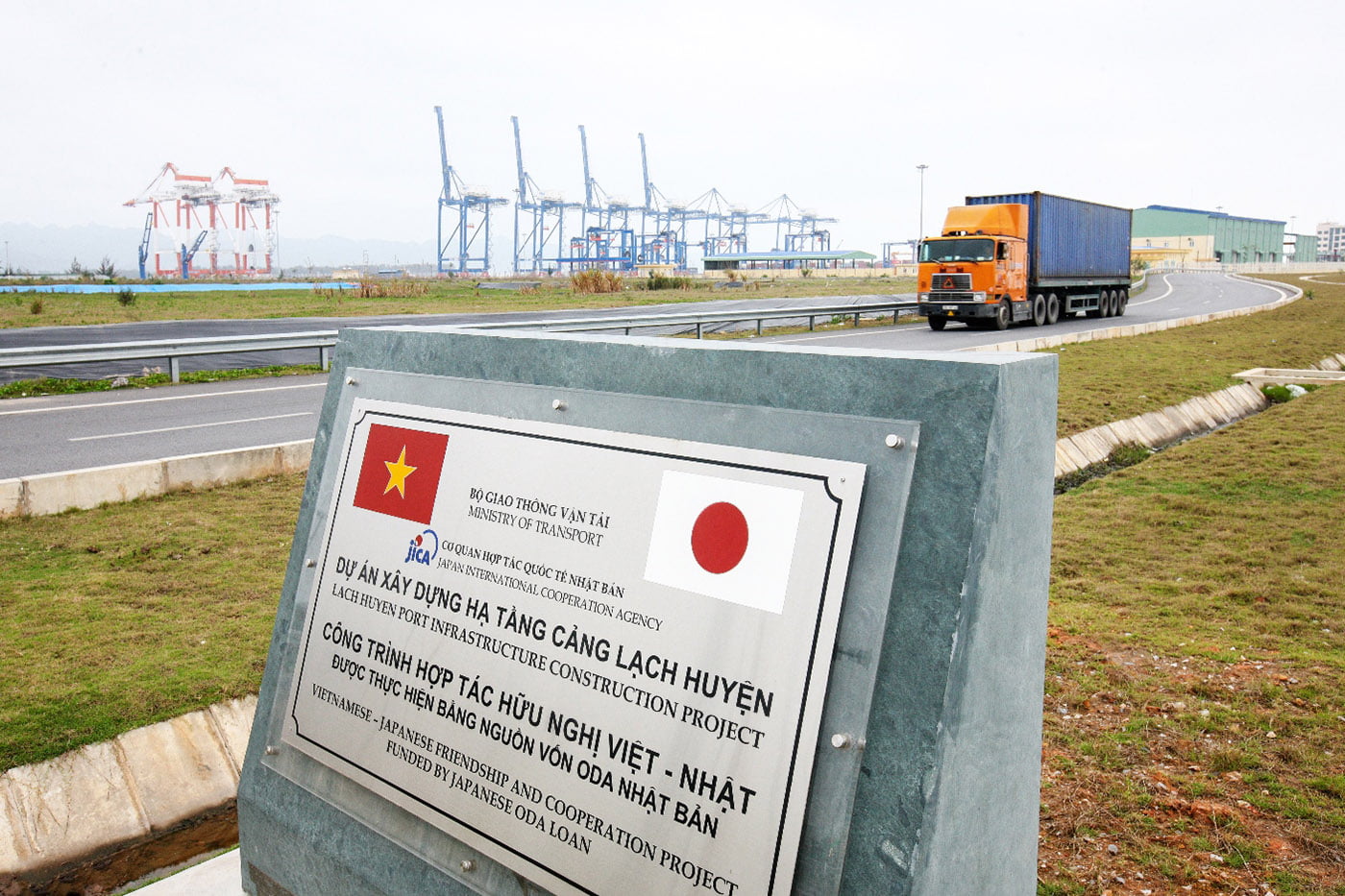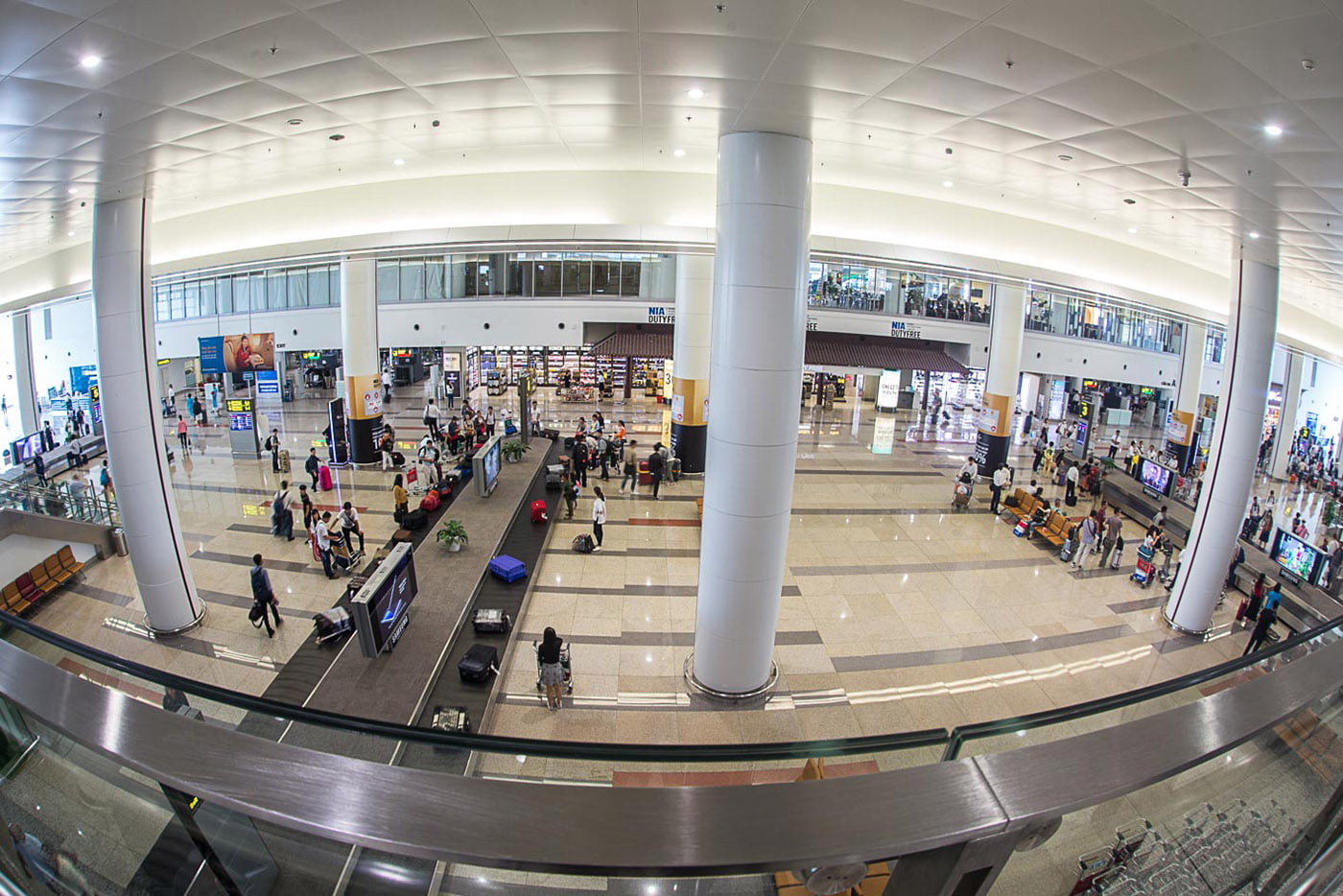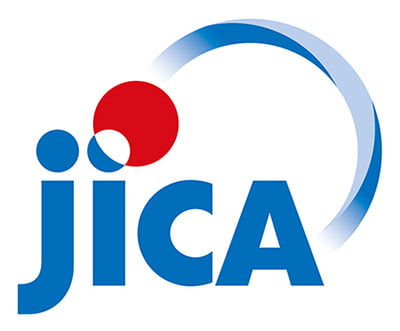2023 marks the fiftieth anniversary of diplomatic relations between Japan and Vietnam. The Japan International Cooperation Agency’s (JICA) activities in Vietnam are contributing to the country’s economic development and the country’s standing on the world stage.
Shimizu Akira, Chief Representative of JICA Vietnam speaks with Bridges
What is JICA’s role in Vietnam?
From the 1990s to 2000s, Vietnam was a low-income country with modest infrastructure. We have played a very important role with regard to infrastructure development in Vietnam, which is crucial for the country’s future growth. In 1992, more than thirty years ago this year, Japan’s Official Development Assistance (ODA) to Vietnam resumed with the country by sending Japanese experts and receiving participants from Vietnam for training in Japan. The JICA Vietnam Office was established in 1995, with the role to implement technical cooperation activities. In October 2008, a ‘new’ JICA Vietnam was established following the merger between the existing JICA and the overseas economic cooperation section of the Japan Bank for International Cooperation’s (JBIC). Today, JICA Vietnam covers all Japan’s ODA cooperation schemes including technical cooperation, concessional loan and grant aid.
Total cumulative amount of Japan’s ODA to Vietnam is over 3,000 billion JPY and our ODA cooperation aims to further strengthen the strategic partnership between Japan and Vietnam. Japan’s ODA has supported upgrading the North-South railway system, national road system, airports and seaports and traffic systems throughout the country. We are proud to contribute to Vietnam’s investment, trade and business environment while strengthening the friendship between our two countries through person-to-person technical transfers and on-going human resource development.
In this fiftieth anniversary year, the friendship between our two countries is on track to grow even stronger in the future.
Shimizu Akira, Chief Representative of Japan International Cooperation Agency Vietnam
Recently, Vietnam has been drastically decreasing its borrowing from ODA and seeking financial sources by issuing bonds in the domestic market. However, under the circumstance that the country still needs to address infrastructure challenges to drive quality growth, there are still many roles that ODA can contribute to stimulate the economy. Compared with other financial instruments available in the market, Japanese ODA loan is more concessional by having low-interest rates with long-term repayment periods (about thirty to forty years). Such ODA loan is more suitable for large-scale, high-quality infrastructure developments like that of HCMC Urban Railway Line 1 Project.
One of the unique features of Japan’s ODA is the technical cooperation. These are provided as grants and play a significant role in especially in the field of human resource development throughout dispatching experts, accepting training participants and/or provision of equipment which deepens understanding between Vietnamese and Japanese colleagues. The Study on the economic development policy in the transition toward a market-oriented economy in the Socialist Republic of Viet Nam or “ISHIKAWA Project” as commonly referred by both Japanese and Vietnamese governments and academia, is considered JICA’s iconic technical cooperation with Vietnam. The Project lasted during August 1995 – March 2001 with 3 phases covering main topics of macro-economics; fiscal and monetary policy; trade and industrial policy; agriculture and rural development; participation for AFTA/APEC/WTO; and SOE & private sector promotion and significantly contributed to the formulation and implementation of the country’s 6th and 7th 5-year Socio-economic Development Plans, which help shape the robust development and triggered the transform of Vietnam thereafter.
Japan’s ODA is the combination of loans, grant aid, and technical cooperation in an integrated fashion which supports inclusive and dynamic development of Vietnam while strengthening the friendship between our two countries.
How would you describe the relationship between Japan and Vietnam today?
Japan is committed to securing peace and prosperity across ASEAN. Vietnam is ASEAN’s third most populous country and is the most important partner for Japan as the ‘Free and Open Indo-Pacific’ initiative is implemented. Vietnam is a strong manufacturing base, a potential export market and a source of material-supplying for Japan. In this fiftieth anniversary year, the friendship between our two countries is on track to grow even stronger in the future.
Many Vietnamese people have a good feeling towards Japan and there is a level of trust shared between our two countries. JICA has contributed to this successful relationship by delivering ODA and Vietnam and Japan continue to be strong partners in terms of diplomacy, economics and people-to-people exchanges.
What opportunities and challenges do you see for JICA Vietnam’s activities post-pandemic?
During the pandemic, JICA Vietnam prioritized: ‘Dealing with the COVID-19 pandemic (mainly on health sector)’ and ‘Economic recovery in post COVID-19 pandemic (mainly on infrastructure development). We supported the Vietnamese Government’s policy of ‘Balancing between pandemic control and economic development’.
To enhance economic growth, JICA Vietnam continues to cooperate with the Vietnamese Government by investing in necessary infrastructure projects, training highly-skilled personnel and cooperating within the healthcare sector.
We have been strengthening the diagnosis and treatment systems at major hospitals, including Bach Mai Hospital, enhancing the research and testing capacity for infectious diseases at the National Institute of Hygiene and Epidemiology (NIHE) and building capacity in terms of health personnel at regional hospitals.
Japan and Vietnam have given the Ho Chi Minh City Urban Railway Line 1 project – the Ben Thanh-Suoi Tien Line high priority status. As of today, all the trains have been transported to Vietnam and construction is being accelerated to ensure service commences as soon as possible.
JICA is also cooperating with the Vietnamese Government regarding carbon-neutral energy supply. The on-shore wind-power project in Quang Tri province was funded under the overseas investment loan scheme in May 2021 and started operations in October 2021. We are also working on a solar power plant project which will contribute to Vietnam’s shift to ‘greener’ energy.
In terms of highly-skilled personnel, the Vietnam Japan University (VJU) already has 260 graduates and 138 newly-enrolled students. Besides, full scholarship has also been provided for almost 820 Vietnamese public employees to follow Master’s and Doctor’s programs in various sectors at Japanese universities and continuously Vietnamese officials will come to Japan for training in the years to come.
JICA Vietnam – Key projects


© JICA Vietnam
JICA Vietnam has been active in Vietnam’s transport (road, rail and sea-ports) and energy infrastructure sectors. Projects include:
- North-South railway system (JICA Vietnam rebuilt and upgraded 44 bridges).
- Da Nang Sea-port which today connects the ‘East-West Corridor’.
- Lach Huyen Sea-Port, which is the largest scale seaport in the Northern Vietnam.
- Cai Mep – Thi Vai Sea-Port, which is the logistical hub in logistics in Southern Vietnam.
- Tan Son Nhat international airport.
- Pha Lai thermal Power Plant in Quang Ninh province.
- Upgraded the sewage systems in economic centres in Hanoi, Hue and Ho Chi Minh City.
- Built hi-tech buildings and provided health equipment for three referral hospitals under grant aid, sent experts for training.


While Vietnam has become more competitive in terms of attracting foreign direct investment (FDI), the country is still in need of infrastructure development and ODA support. With access to advanced technologies, JICA Vietnam has driven transport projects across Vietnam


© JICA Vietnam
- The Hai Van tunnel opened in 2005. The tunnel solved the bottle-neck on the road from the North to the South and from Da Nang Port to the East-West Economic Corridor linking to Lao to Thailand.
- Thu Thiem Tunnel within East-West highway opened in 2011 in Ho Chi Minh City. The modern tunnel going under the Sai Gon River bed linked downtown of the city to the suburbs.
- Noi Bai international terminal airport, Nhat Tan Bridge and the road linking the airport and the bridge in Hanoi. This project created a new international gateway to Hanoi and helped shorten the travelling time from Hanoi to the airport.
For the Green Growth Vietnam
- Human resource development: Technical cooperation with Hanoi Industry University providing skilled human resources in large scale to support industry. (Another Grant Aid project by Japan Development Scholarship (JDS) is providing scholarships for two-year Master’s Degrees in Japan for almost 800 JDS fellows.
- Ho Chi Minh City Metro Line 1 project. Today, Ho Chi Minh City Metro Line 1 project is ninety-five percent completed – the first modern public transport system in the country’s largest economic centre.
- Over 15,000 Japanese experts dispatched to Vietnam.
- Almost 700 Japanese volunteers dispatched to Vietnam.
- 27,000 Vietnamese trainees have been received in Japan.
- Accounting for thirty percent of all ODA to Vietnam, Japan is a key contributor to the Vietnamese economy.
JICA Vietnam’s activities go far beyond being a Japan ODA implementing agency. The Agency coordinates all loans and grant aid to support Vietnam and strengthen the close ties between Vietnam and Japan.
Japan International Cooperation Agency (JICA)
Vietnam Office
11th Floor, CornerStone Building
16 Phan Chu Trinh, Hoan Kiem, Hanoi, Vietnam
Ho Chi Minh Branch
Room 903-904, 9th floor, Saigon Riverside Building,
2A4A Ton Duc Thang str., Ben Nghe ward, district 1, Ho Chi Minh City
www.jica.go.jp/english
www.jica.go.jp/vietnam/english
www.facebook.com/jicavietnam












